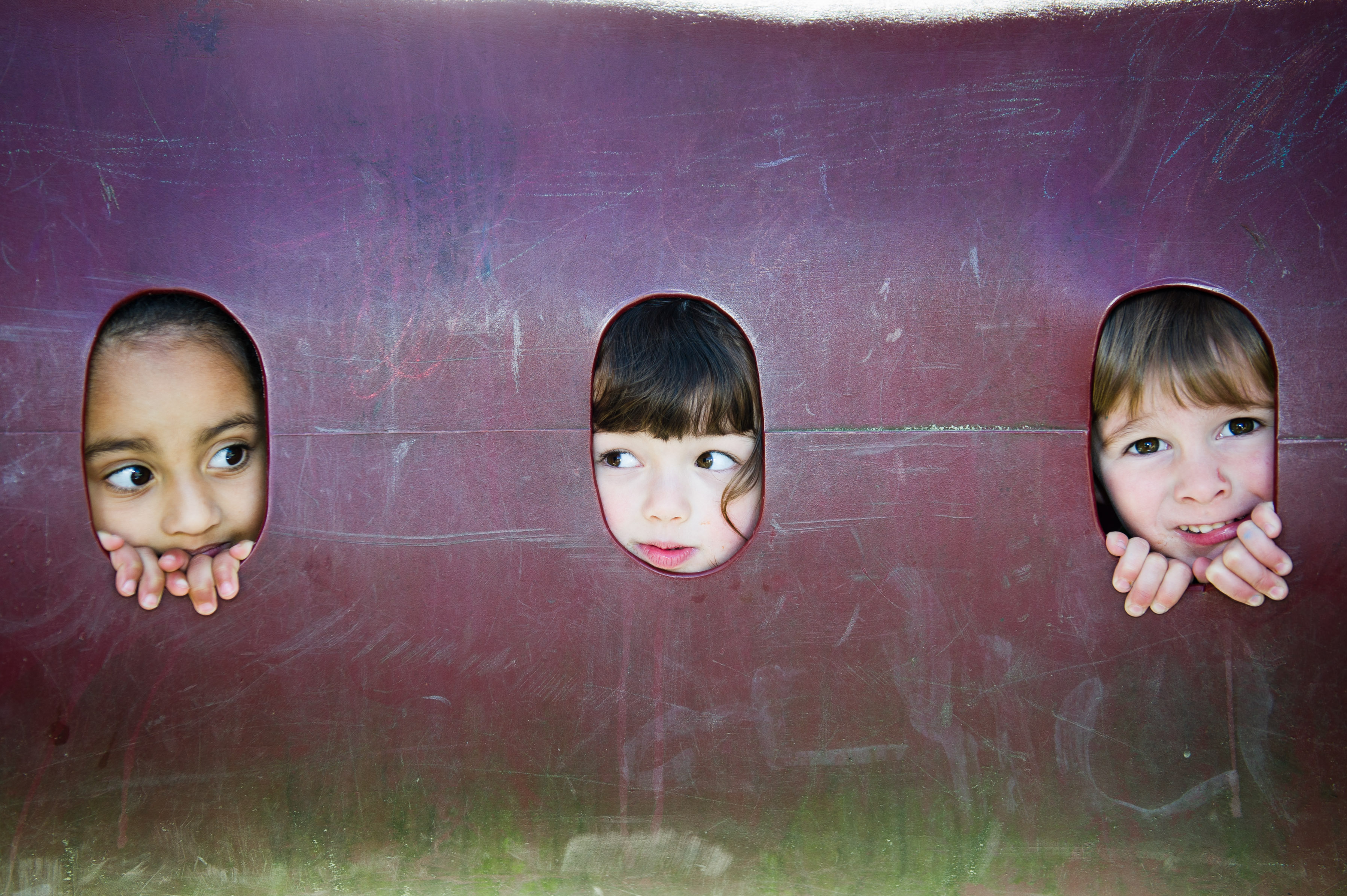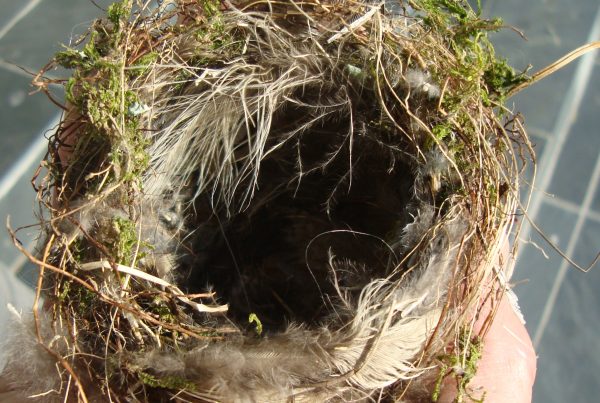
All centres that receive government funding are subject to the same licensing criteria, and to Te Whāriki. This Ministry of Education ECE curriculum aspires to see all children develop to become “competent learners and communicators, healthy in mind, body and spirit, secure in their sense of belonging and in the knowledge that they make a valued contribution to society”. The Education Review Office (ERO) visits centres to ensure records are kept about children to this end. Many centres choose to keep these as portfolio or profile books parents can take home and read. All centres also meet other criteria, such as providing facilities for children’s undisturbed sleep if they have a full-day rather than sessional licence.
Yet, “ECE services have a variety of different operating structures, philosophies and affiliations,” says Ministry of Education media adviser Ruth Laugesen. “There are full-day, part-day and casual options. Registered teachers lead some ECE centres, while in others parents, whānau or caregivers provide the education. There are also services where a home-based educator provides education and care in private homes, with support from registered teachers who visit and give advice.”
The first years of a child’s life are critical for brain development, which is proven to boost achievement throughout a child’s schooling. Yet there is such a variety of providers that many parents require help to select which ECE provider they should send their children to. The guide that follows is not exhaustive, but seeks to familiarise parents for whom ECE is new territory in making this crucial decision.
Kindergartens
The Wellington Kindergarten Association, says senior teachers team leader Jenny Varney, is made up of 63 not-for-profit kindergartens throughout the region. These are covered under the State Services Act and employ only qualified, registered teachers – although the term ‘kindergarten’ may be used by private providers that are not part of the 63 in the association (and therefore perhaps not formally recognised kindergartens). Opening hours and age ranges catered for differs between kindergartens.

In Summary
- Kindergartens employ only registered teachers to care for children.
- There are 63 kindergartens in the Wellington Kindergarten Association.
- Of the 21,847 children the Ministry of Education recognises as enrolled with Wellington ECE providers, 6,192 are enrolled in kindergartens.
- Kindergartens charge on average $3 per hour, though this can range from $1.50 to $5 per hour.[/info]
Not-for-profit Childcare and Education Centres
Lower Hutt City Childcare and Education Centre is a non-profit, charitable trust run by a board of trustees and manager Bronwyn Hoar. The centre chooses to hire teachers who are all registered or in training, and they employ a cook who makes morning tea, lunch and afternoon tea.
The centre opens 7.30am–5.30pm daily, with children enrolled for fixed days. Unqualified support teachers do help, but do not contribute to the teacher-to-child ratio of 1:3 for under-twos and 1:5 for those older.
The group frequently enjoys field trips and after-hours activities like sleep-overs, fish and chip nights, discos and movies. Because children learn and develop motor skills from play, the centre has recently invested over $30,000 in upgrading play equipment, adding monkey bars, climbing boxes, a dramatic play area and a new children’s kitchen.
The centre focuses on “teachers providing quality education for the children,” says Hoar. “We’re quite staunch on making our transition from early childhood to school as smooth as possible,” she adds. There is a daily 1pm extension time for four-year-olds transitioning to school, and the centre works closely with local schools: “Before our children go to school, we visit the school to find out what the classroom of the new entrant teacher requires of us.” Parents and child come along on the visit, with the new entrant teacher shown the child’s profile book and invited to the ECE centre. “Eight weeks after the child has entered the school,” says Hoar, “we then revisit the school to see if we’ve done our job properly.”
[info]In Summary
- There are 249 education and childcare centres (including pre-schools and crèches) in the Wellington region, with 10,896 children enrolled.
- Education and childcare services charge on average $6 an hour, though this can range from $4 to over $8 an hour.[/info]
Private Childcare and Education Centres

There’s one adult to every three babies, six toddlers or seven children over the age of three. Children are generally at the centre two days a week, for a minimum of six hours between 7.45am and 5.45pm. The outside area is used frequently, and the centre has many toys made of natural materials and wood: “there’s a willow tunnel and a bamboo house, where they can go under the bamboo and it’s almost like a cave”.
“Our planning is based on individual children, and from that we create group experiences,” says Miratana. The centre’s philosophy is based on partnership and connections between parents, child and school. “We’ve got a primary-care teaching system, which basically adopts their routine from home, here… that primary-care teacher is responsible for talking with parents on a daily basis in regards to what their child has been up to… The home-away-from-home experience, that’s really important to us.”
Childspace Early Childhood Institute is a locally-based organisation that is making huge waves internationally. Founders Toni and Robin Christie, who started with a child-care centre in their own home almost 20 years ago, are now internationally known for their innovative practices, designs, research and development at their centres. These four centres have been created in modified homes in Karori, Wilton, Northland and Ngaio, and feature qualified teachers, small group sizes, aesthetic environments and an innovative curriculum.
The Childspace institute, situated in Johnsonville, now has a dedicated team delivering professional development and publishing a wide range of books, resources and a quarterly magazine, The Space, for teachers and parents of young children.
The Childspace workshop, also in Johnsonville, specialises in designing and building playgrounds, equipment and furnishings specific to early childhood. The workshop team use natural, renewable and upcycled materials wherever possible, and pride themselves on thinking outside the box both functionally and aesthetically.
Pre-schools
Aro Valley Pre-School is open 8.30am–2.30pm daily, and provides for children aged two to six years in a mixed group. “The older ones look after and role-model the younger ones, and the younger ones look up to the older ones,” says manager Bev Mead. Three fully registered teachers are employed to maintain the required 1:10 ratio of adults to children.
“The whole time from two [years], you’re preparing them for life. So you’re not just zooming in at four and getting them ready for school. From the time they’re born, life’s getting them ready for school.” That said, a pre-school is traditionally attached to a school, so Aro Valley Pre-School children are familiar with Te Aro schools.
“Our pre-school started because there was no kindergarten in Aro Valley,” says manager Bev Mead. “The parents started it up themselves so the children could have some pre-school. So the parents just hire the teachers and are the management committee. The council supplies the building.
“Being a parent co-op means that all of the money goes back into the centre, and the parents help to contribute by doing parent help and cleaning. Because we’re not commercial, we can be flexible. We try and do things to suit our families.”
Resources can be used at any age, the children “just use [them] differently as they get older, and we extend them more as their capability increases. So the teachers are there to help children do what they’re interested in, and we just extend their ideas and concepts of the play from what they know.” The group goes on regular field trips when children have special interests, like to the library or Te Papa. “In summer we went to the Botanical Gardens because we had tadpoles to release.”
“At the moment, we’ve got one child who’s very interested in birds. So we went to the library the other week on the bus to get some special bird books for him and we made a bird-feeding tray. If children show a special interest in something, then we bring in more activities that extend the concepts the child’s got on that interest.”
Crèches

“We foster our children [one to five years] working together side by side. We don’t separate the children,” says Hopkins. Four registered teachers look after a provisional cap of 22 children, who “drive the programme”.
“Our group programme planning is based on the children’s interests. We’ve just done planning on transport and transporting, because a lot of our children like carrying things from one place to another, and transport emergencies. With the earthquakes and fire drills that we’ve had, we visited the fire station… that’s fostered the children’s interest. We’ve got books and resources, we’ve got parents who are firefighters to come in and have talks.”
The crèche also has learning groups (Pipi for under-threes at 11am, and Mako for over-threes at 12.45pm), so children participate in guided activities at their level. “It could be 10–15 minutes or longer, depending on how they feel. On a nice day, they don’t want to come into a room when they could be outside playing!” says Hopkin. “We encourage the children to get outside. It encourages them to build up their muscles for later on, for when they start writing.”
Playcentres
“The reason I chose a playcentre is because it’s a parent co-operative and I wanted to be involved in my children’s education,” says Island Bay Playcentre co-president Sarah Bicknell. The playcentre is typically attended by six or seven adults, at least one of whom is required to have completed three out of six courses in the NZQA Playcentre Diploma in Early Childhood and Adult Education. “I’ve got Course 3, which is where most people get up to,” says Bicknell, who has been coming to the playcentre for three years.

“With playcentres, the great thing about it is the teachers, i.e. the parents, come from a huge variety of walks of life… We’ve got people from an array of professions that bring different things to the centre,” says Bicknell.
Island Bay Playcentre is in a converted house, with family and outside play areas, and a library. It emphasises learning through play during their daily morning sessions, and the 1:3 ratio of adults to children enables many excursions and one-on-one projects.
During each session “parents set up two to three activities that we think they might be interested in, based on what we know about our kids,” says Bicknell. Different-aged children mix, with parents remaining to look after those under two-and-a-half years.
Bicknell loves the playcentre for fostering a culture of shared childcare. Parents don’t hesitate to supervise others’ children in the playground – if someone from the centre has a baby, they will receive support. “I know my friends’ children well enough to know what their interests are and what they like, and how to make them feel better if they’re sad,” she says, adding, “I feel like I’m a lot more qualified in looking after my kids at home!”
[info]In Summary
- Playcentre parents are highly involved with their children’s ECE. Upon enrolling their children, they themselves commence the NZQA Playcentre Diploma in Early Childhood and Adult Education.
- There are 43 playcentres in the Wellington region, with a total enrolment of 1,823 children.
- Playcentres charge on average $0.50 an hour, though this can range from no charge to $1 an hour.[/info]
Kōhanga Reo and Language Nests

The four teaching staff, all fluent Māori speakers, do not speak English in front of the children. Ngaio and Thorndon kōhanga reo feed into Otari School/Te Kura o Otari, a full-immersion primary school, and kōhanga reo children all visit the school for pōwhiri when one of them makes the transition to primary.
Parent Jamie Winiata says the centre is led primarily by whānau (family). The whaea (aunty) and manager is a fully registered teacher, and her 2IC has a Whakapakariki Kōhanga Reo qualification. “When children have come over from another place and talk English,” says Winiata, “it’s really supported to get that child speaking Māori, in a loving way encouraging them to use the new words.”
[info]In Summary
- At kōhanga reo, children are immersed in Māori language 100 percent of the time.
- There are 36 kōhanga reo in the Wellington region, with a combined total of 821 enrolments.[/info]
Playgroups
Brooklyn Playgroup is run by a committee of volunteers, including co-ordinator Lisa van Hulst, and holds regular morning sessions during the school term. Parents bring children on a casual basis and remain with them. They do formally enrol their children though, to secure government funding, which covers rent and some toys, and pay a gold coin per session for all-important tea and biscuits.
They are based in a church hall, with a play room with ride-ons, a playhouse, a baby area, a quiet room with morning tea table and outside play area with slide, Wendy house and sandpit. “Sometimes we have music sessions,” says van Hulst. “There’s a piano there and one of the committee members is a music teacher, so she’ll happily play the piano and we’ll have a sing-along.”

“I didn’t start coming until my daughter was about 14 months, but I really could have come earlier, because even little babies enjoy watching other children play. And as a stay-home mum, I’ve made some fantastic friends.”
Home-based Childcare
“Home-based is a fabulous option for early childhood, especially for those from birth to three years old,” says Jill Power, business manager at Barnardos Home-based Childcare. Barnados policies ensure educators’ homes are safe and suitable. Educators attend professional development workshops after receiving their NZQA qualification; they follow Te Whāriki and are managed by a qualified teacher, so that “the children have an early childhood educational experience in a small-group setting in the home”.
With a maximum of four children per session, the educator fits to the babies’ and parents’ routines, also providing books, puzzles, Play-Doh, outdoor play and other typical ECE experiences, like outings.
Educators are available from 7.30am to 6pm. Parents ring Barnados and speak to the visiting teacher in their area, who takes notes on their requirements and selects an educator, with whom parents then develop a relationship and make arrangements. “It’s the nurturing that is provided by the educator,” that is the difference, says Power. And, “we believe that there’s less risk of catching all those bugs!”
[info]In Summary
- With home-based care, parents negotiate times to deliver their children to the home of an educator in charge of a very small group.
- Home-based services charge on average $6.50 an hour, though this can range from $5.50 to $7 an hour. Fees for nannies can be significantly higher.[/info]
Other programmes

Twelve years ago, a friend of McKenzie’s who ran a kindergarten asked her for help after an accident. “I ended up staying there longer than I anticipated,” recalls McKenzie, “and I preferred to do the afternoon readiness-for-school sessions. When it closed down, a few of the parents came to me and said, ‘Bev, would you mind carrying this on at home?’” She was reluctant due to her lack of qualifications, but parents persisted.
McKenzie says, “some people have got the wrong idea [of what I do]: they call it ‘hot-house teaching’”. It’s about getting children accustomed to school routines: “Coming in, hanging their bags and coats up, sitting down on the mat, quietly.
“Then I read three or four stories to them, and they will choose the books that they want. I have their names set out at a little table, and chairs, and they will go to their name. If they don’t know how to write their name, I will help them.” Children then draw a picture from their favourite of the stories read previously, and they may practise counting from 1 to 20 backwards and forwards, identify numbers and shapes by name, or perhaps enjoy some baking.
Know your priorities when selecting an ECE provider! For more information, see www.minedu.govt.nz/Parents.aspx and the Education Review Office website ero.govt.nz
[danger]ECE: Costs
The fees listed in this article have been estimated using the 2011 Survey of Income, Expenditure and Fees, with Statistics New Zealand data used to estimate fee increases. While estimate fees have been provided on an hourly basis, many services do not charge by the hour, but by session, week or some other measure.
Early childhood services are funded on the number of hours attended by children, the number of qualified staff working with them, and the service type. On average, each child receives around $9,600 in funding per year. The funding rates for each service type can be found at www minedu.govt.nz/theMinistry/Budget/Budget13/ECEFundingRates.aspx
The 20 Hours ECE programme involves the government fully funding the cost of early childhood education (ECE) for three- to five-year-olds, up to six hours per day, and up to 20 hours per week. Providers receive a higher rate of bulk funding for three- to five-year-olds to cover the full average cost of providing ECE.
Providers cannot charge fees to parents for hours their child receives as part of the 20 Hours ECE programme, but they can charge fees for the hours children are enrolled over and above the scheme. Providers may also ask parents for optional costs for features offered over and above what is required by regulation. The ECE service cannot refuse your child access to the 20 Hours ECE scheme if you don’t agree to pay an optional charge.
For more information on 20 Hours ECE, see www.minedu.govt.nz/Parents/EarlyYears/HowECEWorks/20HoursECE/20HoursECEInfo4Parents.aspx
All ECE services must meet the ECE regulations and licensing criteria for their service type to gain and maintain a licence to operate their service. For more information about the licensing requirements and regulations, see www.lead.ece.govt.nz/ServiceTypes and www.legislation.govt.nz/regulation/public/2008/0204/latest/DLM1412501.html?src=qs
[/danger]





